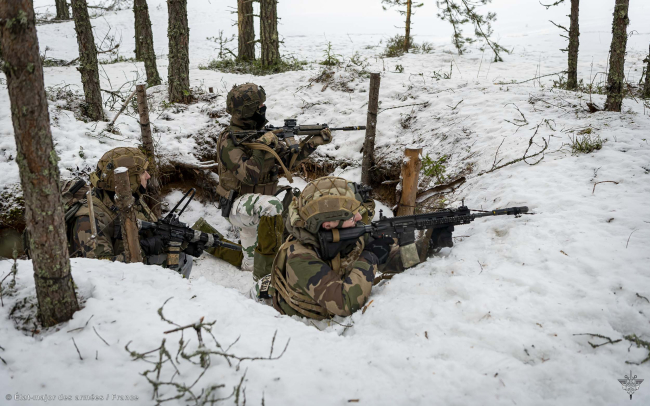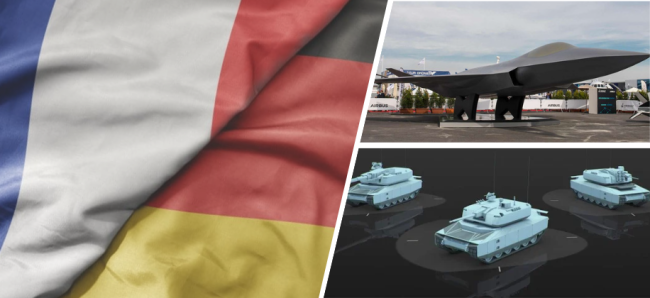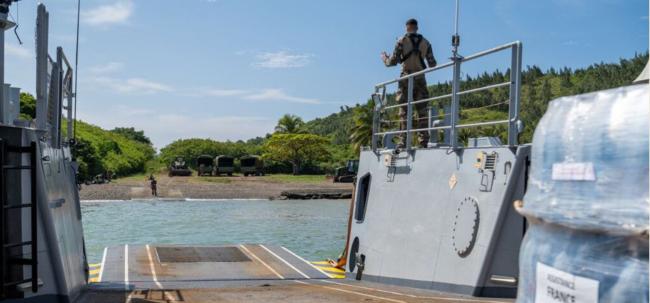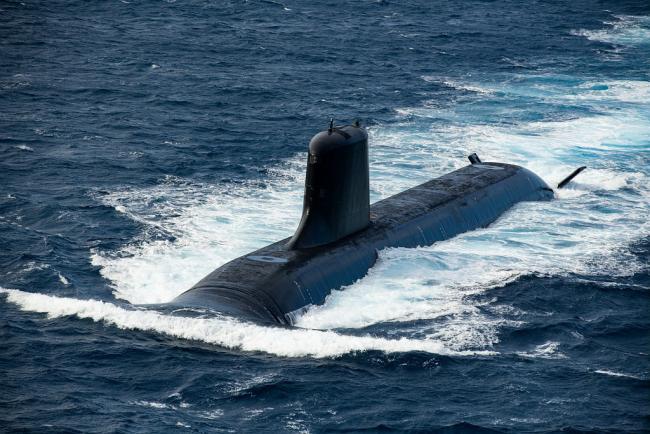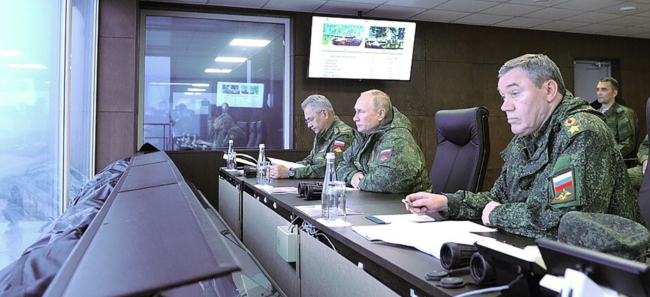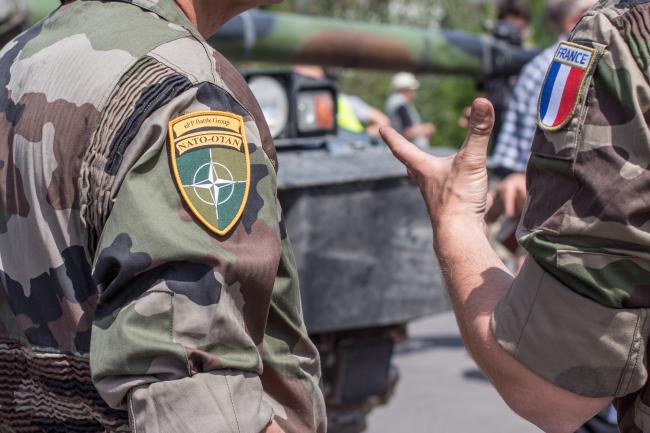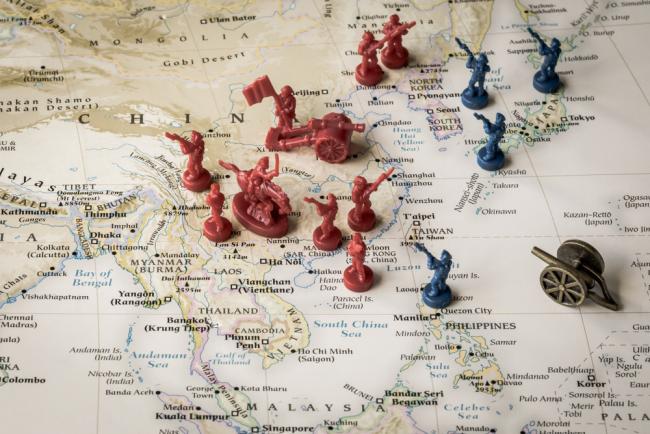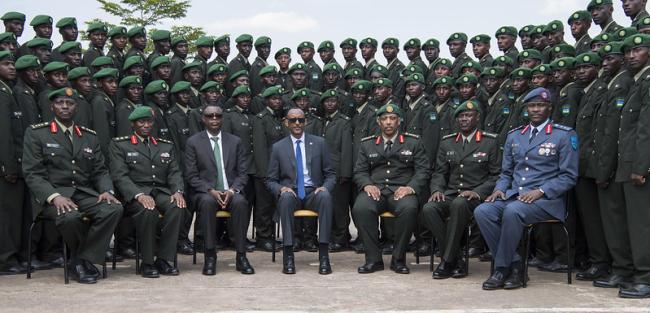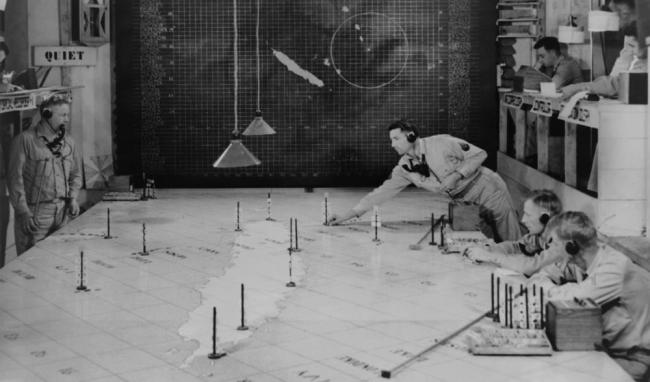Defense Policy and Armed Forces
As military competition increases, nations are adapting their defense policies and transforming their armed forces. Doctrine, organization, equipment and training are key to understanding the evolution of land, air and naval forces.
Related Subjects
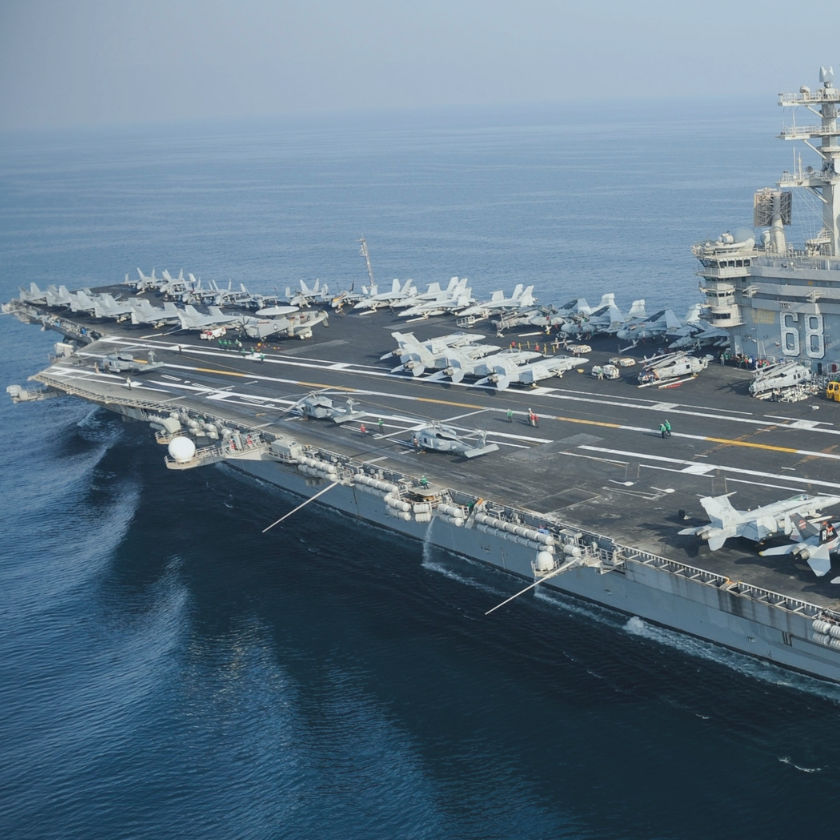
EUDIS, HEDI, DIANA: What's behind Three Defense Innovation Acronyms?
In Europe, with Russia’s war of aggression against Ukraine showing little sign of abating, a persistent gap remains between security needs and defense spending. According to a 2006 commitment enshrined at the 2014 Wales NATO summit, the North Atlantic Treaty Organization (NATO) members should disburse no less than 2% of their national gross domestic product (GDP) on defense, out of which 20% is to be spent on equipment and research and development. In 2024, only 23 Allies out of 32 are expected to meet or exceed this target, though a significant improvement from only three in 2014. This total includes the United States (US) devoting 3.38% of its GDP to defense, constituting almost 70% of all NATO member defense spending combined.
Towards a European Nuclear Deterrent
While major European powers may have to contemplate nuclear deterrence without America, the national flexibility and European financial support required to make it feasible is currently difficult to imagine.
Return to the East: the Russian Threat and the French Pivot to Europe's Eastern Flank
Russia’s full-scale invasion of Ukraine on February 24, 2022, has flung Europe’s Eastern flank into a new phase of strategic confrontation. It has had a major effect on France’s position, which was previously somewhat timid, leading it to significantly reinforce its deterrence and defense posture in support of the collective defense of Europe, in the name of strategic solidarity and the protection of its security interests.
“At the Other Side of the Hill”: The Benefits and False Promises of Battlefield Transparency
Recent conflicts have highlighted a key characteristic of contemporary warfare, unprecedented in its scale and impact on the conduct of operations: “battlefield transparency”.
Troubled Twins: The FCAS and MGCS Weapon Systems and Franco-German Co-operation
The FCAS (Future Combat Air System) and the MGCS (Main Ground Combat System) represent the latest chapter in a more than seven decades-long history of Franco-German defense co-operation.
Reflecting on a Decade of the South Pacific Defence Ministers Meeting (SPDMM). Achievements and Future Pathways
The South Pacific Defence Ministers Meeting (SPDMM) is taking place in Nouméa (New Caledonia) from December 4th to 6th of this year.
Naval Nuclear Propulsion: The Technical and Strategic Challenges of a Restricted Technology
The technical and operational capabilities of naval nuclear propulsion - discretion, power, autonomy and manoeuvrability - make this technology a strategic asset for nuclear deterrence.
France in the Indo-Pacific: The Need for a Pragmatic Strategic Posture
As US-China rivalry reaches its peak and the likelihood of a high-intensity conflict in the region seems greater than ever, this report advocates for a pragmatic recalibration of France’s strategic posture in the Indo-Pacific. This adjustment should be grounded in a realistic reframing of ambitions and an analysis of France’s core interests and the threats it faces.
Zeitenwende: The Bundeswehr’s Paradigm Shift
Russia’s invasion of Ukraine on February 24, 2022, marked a turning point in German defense policy. After thirty years of military downsizing, the Bundeswehr found itself at an extremely low capability level just as a high-intensity war involving a great power was breaking out on Europe’s doorstep for the first time since 1945. Chancellor Olaf Scholz’s response was to embrace this “turning point” (Zeitenwende) by launching a major program to reequip Germany’s armed forces.
What Does the Russian Army Think About its War in Ukraine? Criticisms, Recommendations, Adaptations
The Russian army is very critical of its war in Ukraine. Not just of the first phase of the failed special military operation (SVO), which was inspired by the theorization of bypassing, but also of the strategic deterrence phase that preceded it.
EUDIS, HEDI, DIANA: What's behind Three Defense Innovation Acronyms?
In Europe, with Russia’s war of aggression against Ukraine showing little sign of abating, a persistent gap remains between security needs and defense spending. According to a 2006 commitment enshrined at the 2014 Wales NATO summit, the North Atlantic Treaty Organization (NATO) members should disburse no less than 2% of their national gross domestic product (GDP) on defense, out of which 20% is to be spent on equipment and research and development. In 2024, only 23 Allies out of 32 are expected to meet or exceed this target, though a significant improvement from only three in 2014. This total includes the United States (US) devoting 3.38% of its GDP to defense, constituting almost 70% of all NATO member defense spending combined.
Towards a European Nuclear Deterrent
While major European powers may have to contemplate nuclear deterrence without America, the national flexibility and European financial support required to make it feasible is currently difficult to imagine.
Return to the East: the Russian Threat and the French Pivot to Europe's Eastern Flank
Russia’s full-scale invasion of Ukraine on February 24, 2022, has flung Europe’s Eastern flank into a new phase of strategic confrontation. It has had a major effect on France’s position, which was previously somewhat timid, leading it to significantly reinforce its deterrence and defense posture in support of the collective defense of Europe, in the name of strategic solidarity and the protection of its security interests.
“At the Other Side of the Hill”: The Benefits and False Promises of Battlefield Transparency
Recent conflicts have highlighted a key characteristic of contemporary warfare, unprecedented in its scale and impact on the conduct of operations: “battlefield transparency”.
Zeitenwende: The Bundeswehr’s Paradigm Shift
Russia’s invasion of Ukraine on February 24, 2022, marked a turning point in German defense policy. After thirty years of military downsizing, the Bundeswehr found itself at an extremely low capability level just as a high-intensity war involving a great power was breaking out on Europe’s doorstep for the first time since 1945. Chancellor Olaf Scholz’s response was to embrace this “turning point” (Zeitenwende) by launching a major program to reequip Germany’s armed forces.
France’s Place Within NATO: Toward a Strategic Aggiornamento?
With a rapidly deteriorating security environment, a chaotic withdrawal from Afghanistan, internal disputes exploding into public view, and questions being raised about the scope of its security responsibilities, the North Atlantic Treaty Organization (NATO) seemed to be in dire straits at the time of Russia’s invasion of Ukraine on February 24, 2022.
Imagining Beyond the Imaginary. The Use of Red Teaming and Serious Games in Anticipation and Foresight
The Red Team Defence demonstrates the Ministry of the Armed Forces' desire to appropriate new foresight tools. Thus, brain games or serious games aim to bypass the weight of the military hierarchy, the standardisation of thoughts and cognitive biases in order to avoid strategic unthinking.
Rwanda’s Military Diplomacy. Kigali’s Political Use of the Military Means to Increase Prestige and Influence in Africa and Beyond
Although it is one of the smallest states on the African continent, Rwanda has adopted a proactive foreign policy. Kigali has deployed troops within the framework of multilateral peacekeeping missions to increase its prestige and influence. Since last year, changes have arisen: Rwanda has extended its activities outside of multilateral operations, intervening unilaterally in the Central African Republic (CAR) and then in Mozambique. Rwanda desires to foster its reputation as a regional and continental “security provider”.
The regional economic order: Four scenarios
What will the economic order in the Indo-Pacific region look like twenty years from now? What are the major trends shaping it, and how are they likely to evolve in the near future?
La fourmilière du général : le commandement opérationnel face aux enjeux de haute intensité
Operational command structures have always been able to adapt to the strategic context. However, they now face a new challenge: high intensity threats.


NATO wrestles with internal divisions ahead of Warsaw summit
The alliance is struggling to assemble four battalions to safeguard its eastern flank from a possible Russian attack. In addition, many member states are falling short of their financial commitments to the alliance.
Cooperation Despite Frictions in Northeast Asia
Cooperation Despite Frictions in Northeast Asia
How Asia is transforming geopolitical situation and it is most affecting Taiwan today? Interview with Francis Yi-hua Kan
Francis Yi-hua Kan is an Associate Research Fellow at the Institute of International Relations, National Chengchi University.
Support independent French research
Ifri, a foundation recognized as being of public utility, relies largely on private donors – companies and individuals – to guarantee its sustainability and intellectual independence. Through their funding, donors help maintain the Institute's position among the world's leading think tanks. By benefiting from an internationally recognized network and expertise, donors refine their understanding of geopolitical risk and its consequences on global politics and the economy. In 2025, Ifri supports more than 80 French and foreign companies and organizations.









